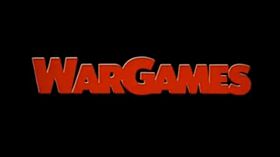I’ve always had a love for wargames, and I’ve enjoyed them in several different forms.

Chess, strategy games, and first-person shooter titles would all count as games that display characteristics of war-based strategy. Bridge would certainly be called a wargame too, if one considers that two sides are competing with ferocity for the advantage of tricks and points.
I’ve taken this to mean that wargame strategies can be applied to a variety of different games.
I play bridge often, but also incorporate reversi, checkers, Monopoly, and a growing list of more. If you enjoy bridge, there are thousands of games you could enjoy alongside it – and the better you get at mastering the wargame, the better you can be at bridge.
Here are 4 sure truths that apply to almost all wargames.
1. Play, and often.
I don’t believe in the 10, 000 hour theory: I believe that it’s going to take a lot more than this to get better at anything. But the 10, 000 hour theory illustrates a very important basic idea, and that’s to practice your chosen skill until it feels like muscle memory to play the best next move.
Play, and play often.
How else will you put any theory into practice?
If you play badly at first, play bots. Bots don’t care, and will get you to improve while nobody else complains about it.
2. Watch as much as you play.
Bridge players call the act of watching the game “kibitzing.” Other sports went with much simpler nomenclature, and instead people usually just call it getting together to watch (insert sport here).
Playing is interactive, and that’s a lot of fun. Watching evokes a sympathetic response in the brain, and might help you to learn how to spot new plays and techniques.
I used to be terrible at cooking, but I can say that I’m on an upward spiral this time. Thanks to flooding my brain with instructional cooking videos, being in a kitchen feels a bit more natural.
Does it work for improving your abilities at most wargames?
Watch a hundred bridge games in a row: you tell me.
(The short answer is yes!)
3. The best strategy is fluidity.
One aspect I’ve noticed as true for a great deal of games out there is that play (and advantages) can change at almost any point. As long as you are close to the end and not there yet, strategies can be altered.
That’s how stronger wargame players learn to win more often.
Different opponents play in different ways. Some dominate the board, while others pretend to chase. Some love the art of the trap, while others make their intentions obvious and aggressive from the start.
What’s the best strategy for most wargames?
Fluidity.
4. Predict one move ahead, not a whole game.
I’ve heard this as an adapted quote, requoted from another player by Bobby Fischer when asked during an interview. It’s very, very true – and can be applied to most games you could care to mention here.
It’s quoted often, because it applies to any game where forward thinking advances your position.
Don’t try to see an entire game ahead unless your superpower is amazing foresight. (Hint: It probably isn’t.)
Keep your wargame predictions to one next move. You’ll be correct more often about where the game is going from there.
What’s your best wargame strategy tip for bridge players?
